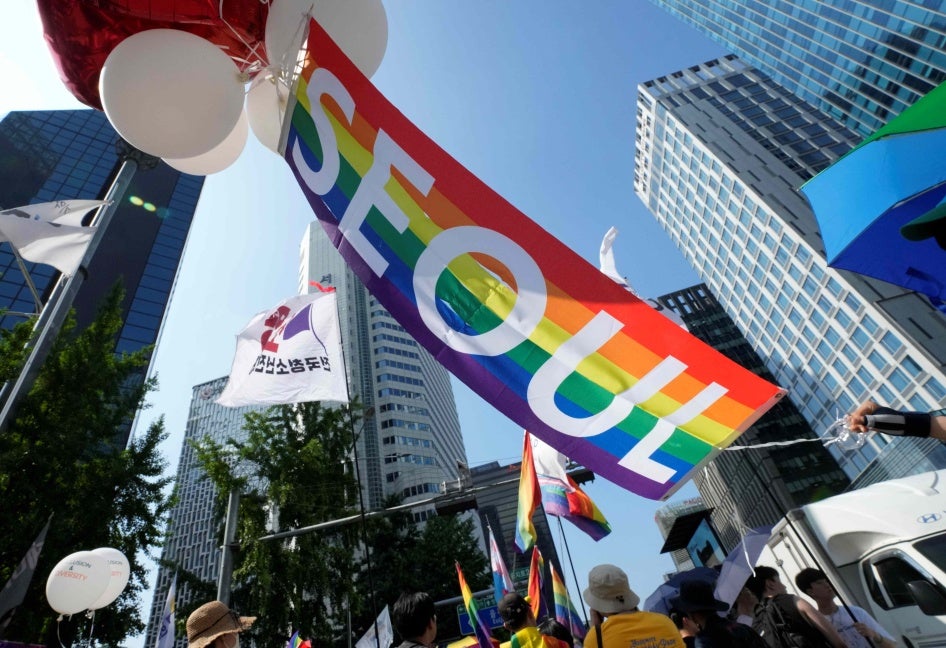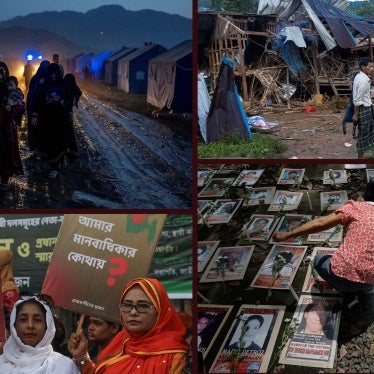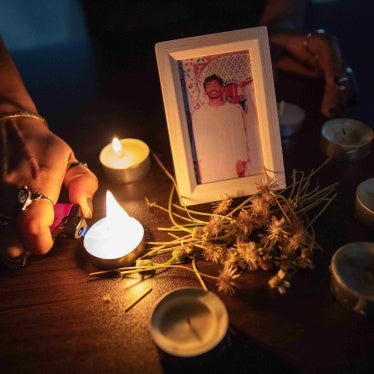(Bangkok) – South Korean President Yoon Suk-yeol, in his second year in office, strengthened government policies on human rights for North Korea during 2023 while neglecting human rights domestically, Human Rights Watch said today in its World Report 2024.
The government failed to address systemic discrimination against women and girls; lesbian, gay, bisexual, and transgender (LGBT) people; and people with disabilities. Activists also raised concerns over the apparent erosion of the rights to freedom of peaceful assembly and association.
“In the past year, President Yoon Suk-yeol has strengthened promotion of human rights in North Korea, but his failure to address human rights at home tarnishes his credibility to raise human rights abroad,” said Lina Yoon, senior Korea researcher at Human Rights Watch. “The South Korean government should adopt a more principled human rights agenda by protecting the rights of marginalized groups at home, while promoting human rights in North Korea and regionally.”
In the 740-page World Report 2024, its 34th edition, Human Rights Watch reviews human rights practices in more than 100 countries. In her introductory essay, Executive Director Tirana Hassan says that 2023 was a consequential year not only for human rights suppression and wartime atrocities but also for selective government outrage and transactional diplomacy that carried profound costs for the rights of those not in on the deal. But she says there were also signs of hope, showing the possibility of a different path, and calls on governments to consistently uphold their human rights obligations.
In 2023 the Yoon administration prioritized the promotion of human rights in North Korea. In September, the Constitutional Court overturned a 2020 law that prohibited sending leaflets and other materials into North Korea, allowing activist groups to resume sending information from South Korea into the country.
The Unification Ministry released its annual report on the human rights situation in North Korea publicly for the first time in March. President Yoon reiterated his commitment to establishing a North Korean Human Rights Foundation to conduct inquiries and further develop policies on promoting human rights in North Korea, as stipulated by the 2016 North Korean Human Rights Act. South Korea co-sponsored the annual resolution at the United Nations General Assembly condemning North Korean human rights violations for the second consecutive year, as well as the Human Rights Council resolution on North Korea.
Domestically, however, the government did not take meaningful steps to combat pervasive discrimination against women and girls. In February, the Justice Ministry rejected the Gender Equality and Family Ministry’s plans to revise the legal definition of rape to include nonconsensual sex. President Yoon did not renounce his January 2022 pledge to abolish the Gender Equality and Family Ministry, which he made in an apparent bid to secure support from anti-feminist male voters, despite condemnation from human rights groups.
The LGBT rights movement continued to gain visibility and momentum, but lawmakers have resisted providing meaningful protections. A court ruled in February that a gay couple should receive the same National Health Insurance Service benefits as a heterosexual couple, recognizing the rights of a same-sex couple for the first time. Yet LGBT people continue to face discrimination and hostility, including from the Seoul city government, which blocked the Seoul Queer Culture Festival from holding its annual pride parade in front of City Hall and forced the organizers to move to a different location.
Lawmakers have failed to enact legislation to prohibit anti-LGBT discrimination or recognize same-sex partnerships. In October, the Constitutional Court upheld article 92-6 of the country’s Military Criminal Act, which prohibits same-sex activity between soldiers.









